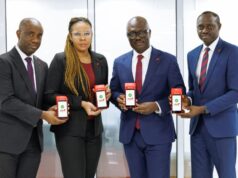Real term Nigeria telecommunications continued over-all growth in 2016 is dependent on whether the telecoms company can find the foreign exchange to pay for and ship in networking equipment required for upgrades and efficient service deployment.
Finding forex have been increasingly difficult, operators said, and it is has become equally difficult to convince venture suppliers to take assurances. Part of the reason lies in the complex foreign exchange policy which is compounding the pressure on the local currency, the Naira.
Analysts are projecting a flat growth by the end of the year for the sector which contributed N1,411.74 billion to GDP in the first quarter of 2016, or 8.83 %, an increase of 0.5% relative to the same quarter of the previous year, according to the National Bureau of Statistics-NBS.
The Central Bank of Nigeria, CBN, last May, responded to the Forex question when it floated the currency (NIG NAIRA) and provided a window for critical infrastructure financing. Industry players say they are hopeful that this time that window will be also open to telecom operators to access forex to import critical telecoms equipment such as switching, transmission and customer premises equipment needed to drive efficiency and growth.
Meanwhile, the NBS reckon that the Global System for Mobile Communication-GSM- subscriptions were the only type to increase between over the year to March 2016 but added that although at 4.06%, the growth rate was lower than in previous month.
According to national statistics office, Lagos State accounted for the largest share of active voice subscribers with 19.04 million or 12.8% of the total. Lagos is closely followed by Ogun State, a neighboring state to Lagos, with 8.53 million subscribers or 5.7%. Kano in Northern Nigeria have active voice subscribers of 7.81 million or 5.25%, Oyo state with 7.53 million subscribers or 5.06% of the total, then FCT and Rivers State with 6.03 million (4.05%) and 5.84 million (3.93%) respectively. On the other hand, Bayelsa (1.11 million), Yobe (1.40 million), Ekiti (1.42 million) and Ebonyi (1.43 million) had the smallest number of active subscriber as of q1 2016.
“Lagos State was the dominant market for all of the active voice telecom companies accounting for 10.05% of MTN total voice subscribers (followed by Ogun, Kaduna and Rivers in that order); 10.03% for Glo (followed by Oyo, Niger, Ogun and FCT in that order); 16.0% for Airtel (followed by Ogun, Kano and Oyo); and 19.1% of Etisalat voice subscribers (followed by Ogun, Kaduna and Rivers in that order),” NBS noted in its Q1 Nigerian Telecommunications (services) report









